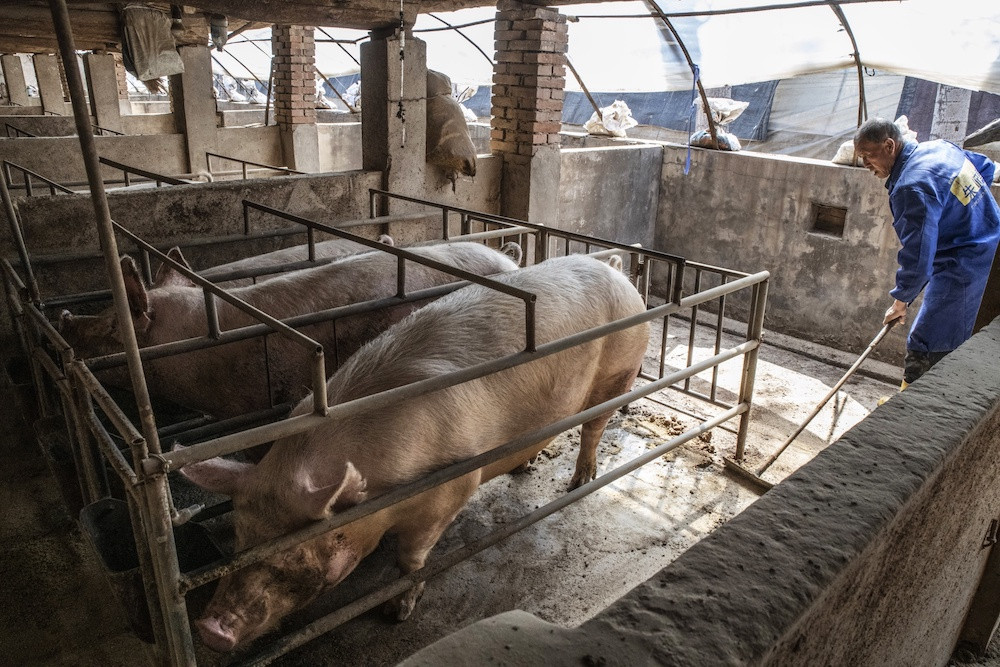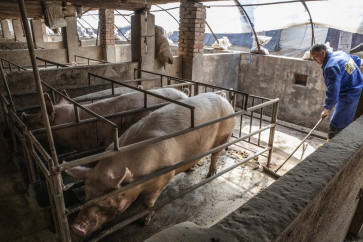Popular Reads
Top Results
Can't find what you're looking for?
View all search resultsPopular Reads
Top Results
Can't find what you're looking for?
View all search resultsSwine fever may affect millions of people in Indonesia
The African swine fever (ASF) is a highly contagious viral disease affecting domestic and wild pigs with almost 100 percent case fatality but harmless to humans and other animals. There are a number of reasons why these diseases should be a major concern for the Indonesian government and people.
Change text size
Gift Premium Articles
to Anyone
 The African swine fever (ASF) is a highly contagious viral disease affecting domestic and wild pigs with almost 100 percent case fatality but harmless to humans and other animals. There are a number of reasons why these diseases should be a major concern for the Indonesian government and people. (Bloomberg/File)
The African swine fever (ASF) is a highly contagious viral disease affecting domestic and wild pigs with almost 100 percent case fatality but harmless to humans and other animals. There are a number of reasons why these diseases should be a major concern for the Indonesian government and people. (Bloomberg/File)
T
he African swine fever (ASF) epidemic in Asia is becoming an increasingly large problem. Starting in northern China in August 2018 it has rapidly moved south to Vietnam and onto Luzon Island in the Philippines and reached Timor Leste last October. It has resulted in the death of 350 million domestic pigs, driving up meat prices and causing significant economic problems.
Since late October, a fatal disease has also been killing a large number of domestic pigs in northern Sumatra. The government authorities together with the Food and Agricultural Organization recently confirmed that the disease is caused by ASF.
Pig deaths in northern Sumatra rapidly increased from an initial estimate of 50 animals in late October to 27,000 dead animals in mid-December. This looks like exponential growth. The finding of a dead wild pig in Aceh on Dec. 8 indicates that the disease has now also reached the wild pig population and will most likely spread all across Sumatra.
ASF is a highly contagious viral disease affecting domestic and wild pigs with almost 100 percent case fatality but harmless to humans and other animals. There are a number of reasons why these diseases should be a major concern for the Indonesian government and people.
First, domestic and wild pigs represent a critical food source for more than 50 million people in predominantly-Muslim Indonesia. This includes Christian Dayak groups in Kalimantan who have a preference for hunting the Bornean bearded pig, people in northern and central Sulawesi buying domestic pork and wild meat from Sulawesi warty pigs, the Balinese pork industry, and the many poor, forest-dwelling people of east and west Nusantara, the Maluku and Papua people who rely strongly on wild and domestic pig meat for their protein intake.
If the disease spreads to these parts of Indonesia, the human costs could be very high indeed.
Swine fever is also a concern for wildlife conservation. Not only does it threaten the favored protein source of millions of people, undermining their livelihoods and food security, a swine fever epidemic could also lead to increased hunting pressure on other endangered wildlife species. For example, studies in Papua show that when people cannot hunt pigs, they switch to more endangered species such a tree-kangaroos and cuscuses.

















